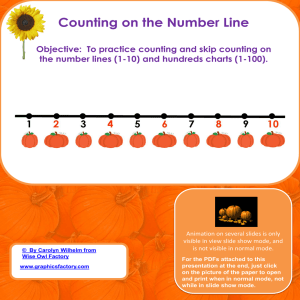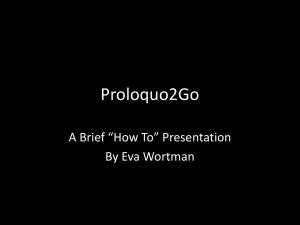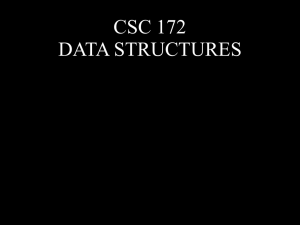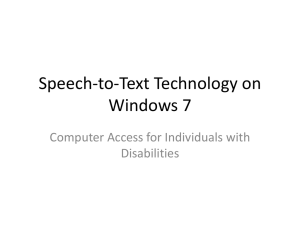Menu - ttosspon
advertisement
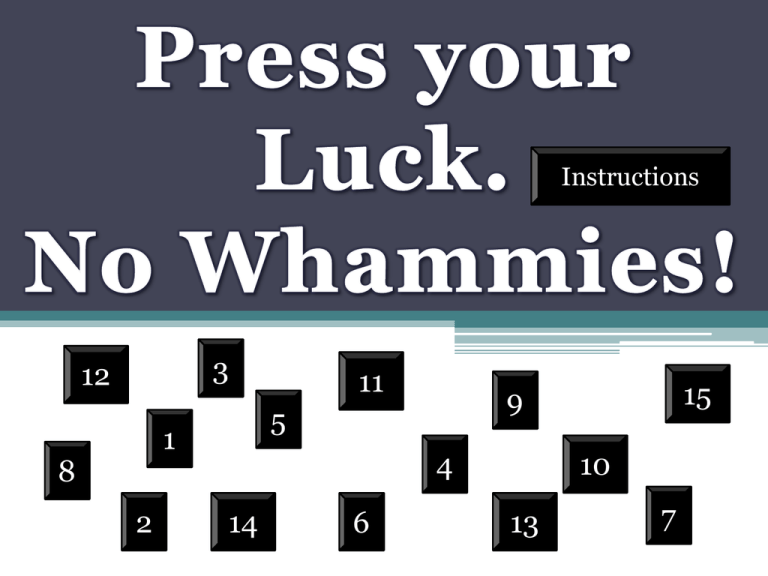
Instructions 3 12 2 4 14 6 15 9 5 1 8 11 10 13 7 Instructions • Write down the number of the question • Write down your answer (just the letter is fine, you do not have to write the entire question) Menu Skip! 1. How does your level of familiarity with a subject affect your reading comprehension? a. It connects what you already know with the concepts being communicated b. It alerts you to passages that you can skip c. It helps you prioritize your reading assignments d. It has no effect on overall comprehension Menu Skip! 2. Secondary sources are: a. original documents. b. historical artifacts. c. the legitimate presentation of original documents for different purposes. d. scientific studies. Menu Skip! 3. Determining your purpose for reading helps you complete assignments because you can: a. improve your reading comprehension. b. use your study time more effectively. c. decide how much time and effort to expend. d. all of the above. Menu Skip! 4. What is NOT part of determining an effective setting for focused reading? a. Select the right location b. Select the evening c. Select a time of day when you are alert and focused d. Select the right companion Menu Skip! 5. Ways to increase your concentration when studying include: a. avoiding social activities and fearing failure. b. taking breaks every hour and writing ideas on paper. Menu c. organizing your books and analyzing your environment. d. structuring your study time Skip! and minimizing technology use. 6. People are more likely to remember something that generated a/an ________ _________ than any other material. a. creative response b. emotional response c. analytical response d. practical response Menu Skip! 7. How can you determine the purpose of each assignment in class? a. Survey the textbook. b. Review the syllabus c. Ask your classmates d. Know the expectations Menu Skip! 8. When studying math you should: a. understand the principle behind every formula. b. do some problems and then memorize the formula. c. move on even if you are unsure. d. skim over formulas to devote more time to concepts. Menu Skip! 9. Surveying before reading a chapter will help you to determine: a. how many pages you need to read. b. what specific content is being covered in the chapter. c. how to review the material to prep for exams. d. the information to memorize. Menu Skip! 10. What is the best way to build your vocabulary? a. Underline every new word you encounter as you read b. Ask your instructor to define new terms related to the course c. Define and use words in context d. None of the above Menu Skip! 11. When is the best time to recite information from your reading? a. After you have read the chapter b. After you have read one paragraph c. After you have read a text section d. After you have designed questions Menu Skip! 12. The best critical readers: a. choose a side if they are reading an argument. b. accept most of what they read as fact. c. offer constructive criticism about the reading. d. question every statement for accuracy, relevance, and logic. Menu Skip! 13. Differentiating between reading for pleasure and reading for information involves a thinking process in which level of Bloom's Taxonomy? a. Understanding b. Evaluation c. Analysis d. Knowledge Menu Skip! 14. Which of the following would be BEST to highlight as you read your textbook? a. Only the definitions b. Each sentence as you read it c. Key terms and concepts d. You shouldn't mark your textbook at all Menu Skip! Short Answer (Write on the back!) 1. What are some methods to learn content-specific vocabulary? Menu Skip! 15. Using color to highlight while reading does not help the reader remember or recall the information better. True False Menu Skip! The End
